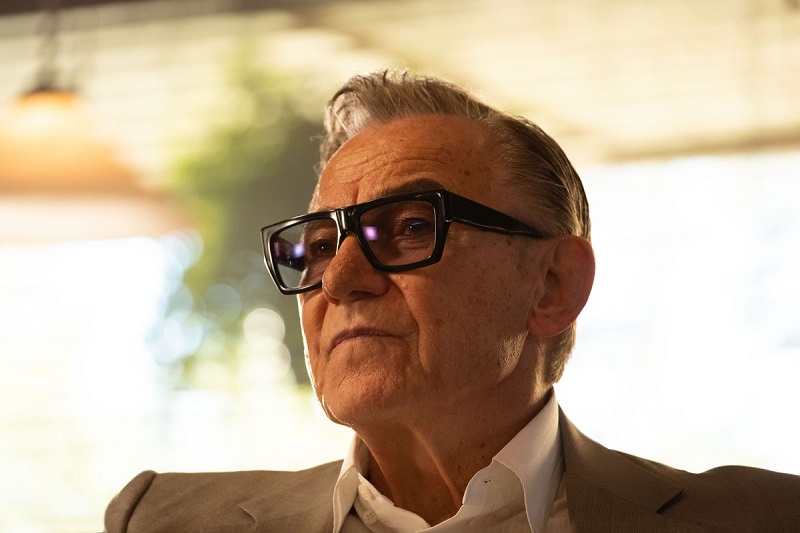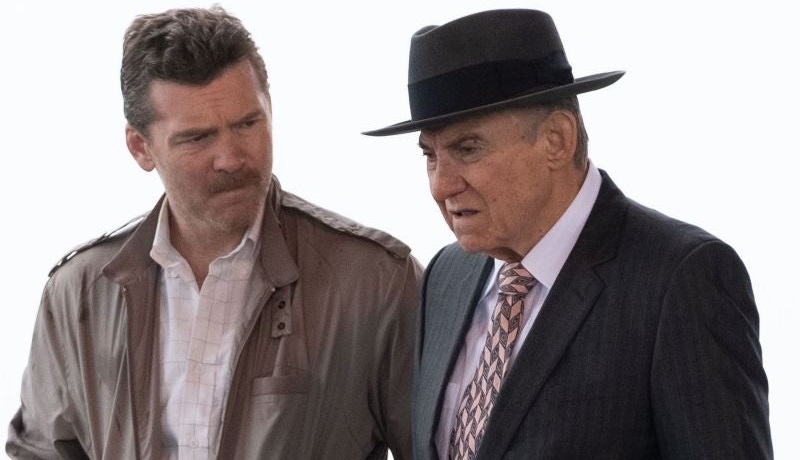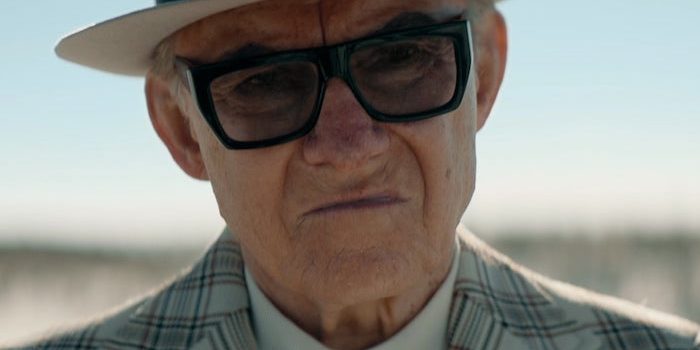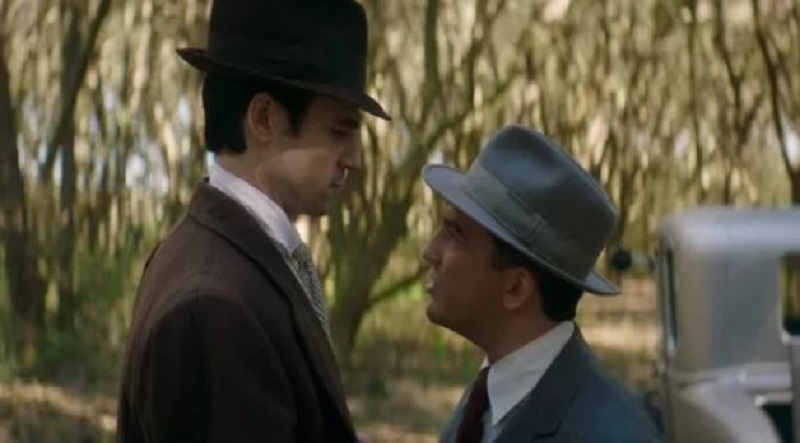Meyer Lansky. For a period of time, simply saying his name caused feathers to be rustled. The notorious Jewish gangster, who with Bugsy Siegel and Lucky Luciano, became organized crime ground zero, gets the big-screen treatment with Lansky.

Casting is everything. By tapping Oscar-nominated Harvey Keitel (who ironically earned his nod for Supporting Actor in Bugsy) as the older Lansky telling his story to a reporter/author writing a book in Sam Worthington’s David Stone, auteur Eytan Rockaway has crafted an environment of raw realism that is sadly been missing of late in the Gangster milieu.
Worthington (Avatar, Hacksaw Ridge) is a down on his luck writer who had one successful book and believes that the action of Lansky reaching out to him to come to Miami to hear his secrets for a biography of his life is exactly what he needs to turn the corner from mediocrity to the highest forms of excellence.
There’s also this… the Feds believe that Lansky is hiding over $300 million, and they will do anything to discover where it is—after all, the FBI hasn’t had the best of luck putting cuffs on Lansky’s hands throughout his career. The key to this, currently, is Stone.
At their first meeting at a Florida diner, Lansky provides the instructions for how this is going to work. No tape recorders and it is all “off the record” until Lansky says so, which he hints is when he meets his maker. Without blinking, Stone agrees.
Hearing Keitel masterfully make his history come alive, literally through flashbacks with John Magaro (Overlord, The Big Short) nailing it as the younger Lansky in some perilous situations. Magaro rides a wave of confidence that is rooted in intelligence. What is so fascinating about Lansky is that Rockaway illustrates a man’s life that is largely told in myths and legends. It’s a delivery Keitel uses to build empathy towards this—literal OG, aka original gangster.
In Lansky, Keitel has a virtual mental playground of his life’s past that we experience through Magaro. It’s a risky move, but in this particular method, the narrative structure doesn’t cause understanding issues in the least. In fact, it is exactly the opposite. One feels a connection to Lansky that borderlines empathy.
The cinema is filled with a history of filmmakers who had to build a story around a protagonist who is your antagonist. How that is handled is the key to whether that narrative gamble pays off. With Keitel’s latest, it works. One gets to experience the ride up the success ladder while shots of him eating pancakes in his tweens illustrate the progression of time. Not one bit of confusion ensued. If anything, its innate unconventional method of storytelling sends reflections throughout the cinema.
Don’t be surprised if after witnessing Keitel put on a clinic, you will want to answer some questions about your past as well. Those are the best films. The cinema tones spur conversation, discussion, and discourse. Quentin Tarantino said it best when he wrote in True Romance, “It’s just after I see a movie, I like to go get a piece of pie and talk about it.,” as Christian Slater’s Clarence Worley.
Simply recalling Lansky’s life in the film through movie magic and the amazing Keitel, there is an accurate, astute, and awe-inspiring look at the leader of the Jewish mafia who rubbed elbows with Al Capone and Mickey Cohen. Too often films try to tackle too much in a biopic. As they do in Lansky, selecting a certain portion of his life and letting that be emblematic of O.G.’s entire existence, is more concise, efficient, and yes, much more emotional. You’re invested. It doesn’t just pull at the heartstrings, it rattles them.
As if the story going forwards and backward throughout wasn’t enough of a zig-zag through history, Rockaway pens in some rough times, tough decisions, friends he couldn’t save, and the like—it gives the filmmaker lots to juggle and keep an audience engaged.

No matter what happens with Lansky’s life after he and Stone part ways, it doesn’t matter. That is what is so beautiful about this story. We are introduced to characters, who just happen to be real people doing extraordinary things, and they work for companies such as Murder Inc. and National Crime Syndicate. You know. No big.
Grade: A-


